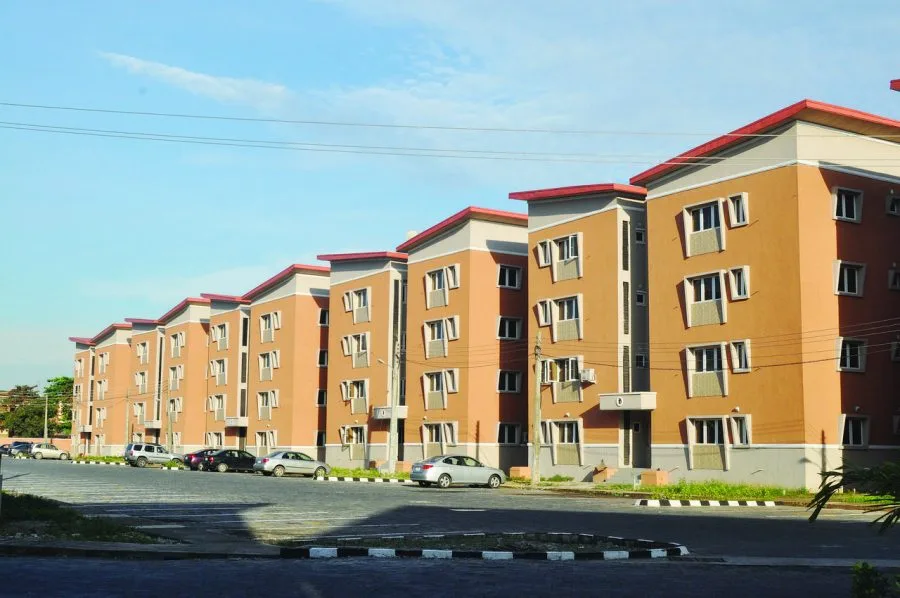Nigeria has a lingering problem of housing deficit such that it will need a minimum of 10 years to resolve if it maintains building 700,000 units of houses annually.
According to a study by PwC, about 75 per cent of the 42 million housing units we have in Nigeria, which is about 31.6 million of them were substandard.
Another report by World Bank estimates that Nigeria still has a housing deficit of about 17 million units which will require over $390 billion to fix.
Reacting to this situation, Yemi Osinbajo, Vice President Monday, said access to affordable housing is a major subject that remains largely unaddressed in Nigeria.
He said Nigeria had problems of creating new homes and the problem of actually addressing the substandard nature of a significant number of the units across the country.
He said although attempts to provide suitable homes for Nigerians were being stepped up, getting access to money had remained a problem.
The vice president who is still recuperating after surgery spoke through Femi Adewole, the Managing Director of Family Homes Funds at the Africa International Housing Show 2022 in Abuja.
“Although there is no shortage of policies and programs that have been enacted by various governments to tackle this problem, effective implementation remains a persistent dilemma.
“Our housing challenge in Nigeria presents itself in two primary forms. We have the issue of inadequate housing supply to meet the needs of a rapidly growing population, most significantly for people on low income and young people.”
According to Osinbajo, a large proportion of Nigeria’s existing stock are substandard housing which do not meet widely accepted standards of habitability.
Sequel to revelation by the vice president that only 25 per cent of houses in Nigeria were qualitative, stakeholders and professionals have said the vice president’s figure of substandard housing is an understatement.
They said in the true meaning standard of housing, Nigeria may have more than 80 per cent substandard housing.
Architects Simeon Kemakolam and Victor Osita, who practice in Lagos told NATIONAL ECONOMY that besides structural defects that is common with buildings in Nigeria, the components that constitute standard housing such as proper water system, plumbing, heating and cooling are mostly absent in Nigerian homes.
Kemakolam alluded to poor ventilation as some of the factors that make up substandard structures that reduce the comfort in residents.
On his part, Victor Osita, said most of the materials used in Nigerian homes are off specification due to builders’ penchant to save costs.
Founder and chief exxecutive officer (CEO) of Orji Consults, a real estate firm in Abuja, Nelson Orji, said the high costs of building materials is pushing builders to cut corners. He said coupled with the fact that people are wont to engage in malpractice when it has to do with building standards, adding that the institutions of government that are saddled with the responsibility to monitor and regulate the activities of builders are weak. He alluded the recent spate of building collapse to poor regulation.
Also, CEO, Castles said in terms of international standard, even though Nigerian homes are made of concrete, they are not durable and do not stand the test of time. He also stated that most houses in Nigeria are mere shelter, not homes that would afford the necessary comfort for human habitation.
But Osinbajo, however said the President Muhammadu Buhari-led administration was intensifying efforts to make decent and affordable homes available for Nigerians.
This, he said, was amidst the growing challenge posed by access to adequate funding.
He further said, “Although there is no shortage of policies and programmes that have been enacted by various governments to tackle this problem, effective implementation remains a persistent dilemma.
“Our housing challenge in Nigeria presents itself in two primary forms. We have the issue of inadequate housing supply to meet the needs of a rapidly growing population, most significantly for people on low income and young people.
“Secondly, a large proportion of our existing stock are substandard housing which do not meet widely accepted standards of habitability.
“According to a study by PWC, about 75 per cent of the 42 million housing units we have in Nigeria, which is about 31.6 million of them were substandard.”
After listing these challenges, Osinbajo noted that “These challenges continue to deepen with increasing social and income inequalities in our society.
“At the extreme, many households are faced with the dilemma of survival between food and adequate shelter.
“This is not congruent with this administration’s vision for a better Nigeria where even the weakest among us will have the dignity of decent homes.”
He also said, “Over the last seven years, across different areas of government, a number of important initiatives which have the potential to enable us meet these challenges successfully going forward are being put in place.
“The government continues to support the Nigerian Mortgage Refinance Company originally established in 2015, with its guarantees enabling it to access the capital market competitively to refinance mortgages.”
At the dawn of the Buhari administration six years ago, the federal government had embarked on building 5,000 housing units to reduce the housing deficit in the country. Observers say that target has largely been met.
It has been estimated that Nigeria has 17 million housing deficit, a claim that is yet to be proven.





